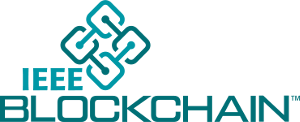IEEE Blockchain Technical Briefs - Q4 2022
A collection of short technical articles
Vehicle Information As A Service (VIAAS)
Democratizing Vehicle Information Through a Decentralized Blockchain Network for the Automotive and Transportation Industry
By Nikhil Rai and Hari S. Iyer
Technology is advancing at warp speed across all domains and is becoming increasingly commoditized. This is especially true in a Covid-altered, war-affected, and geopolitically restructured global economy. In the effort to make the world well-connected and more sustainable, we are also witnessing continued innovation, especially in the automotive mobility and transportation industry. In the last few decades, there has been a huge proliferation of information about vehicles and the ecosystems that they create. With multiple systems storing information across various stakeholders including those from manufacturing, services companies and industry organizations, there isn’t a decentralized, unified approach to get access to vehicular information.
Building a blockchain based-decentralized Vehicle Information As A Service (VIAAS) is a first step towards achieving a transparent, egalitarian, trusted and a ubiquitous vehicle ecosystem information repository. In this technical brief, we explore how VIAAS powered by a decentralized blockchain can democratize vehicle information and make it efficiently available to all stakeholders: spanning commercial businesses, consumers, and other automotive market players across the industry.
An Incentive System for Decentralized DAG-based Platforms
By Sergii Grybniak, Institute of Computer Systems, Odesa Polytechnic State University, Ukraine; Yevhen Leonchyk, Faculty of Mathematics, Physics and Information Technologies, Odesa I.I. Mechnikov National University, Ukraine; Ruslan Masalskyi, Faculty of Mathematics, Physics and Information Technologies, Odesa I.I. Mechnikov National University, Ukraine; Igor Mazurok, Faculty of Mathematics, Physics and Information Technologies, Odesa I.I. Mechnikov National University, Ukraine; and Oleksandr Nashyvan, Institute of Computer Systems, Odesa Polytechnic State University, Ukraine
Decentralized public platforms are becoming increasingly popular due to a growing number of applications for various areas of business, finance, and social life. Authorless nodes can easily join such networks without any confirmation, making a transparent system of rewards and punishments crucial for the self-sustainability of public platforms. To achieve this, a system for incentivizing and punishing Workers’ behavior should be tightly integrated into the corresponding consensus protocol, taking into account all of its features, and facilitating a favorable and supportive environment with equal rights for all participants. All honest nodes make common decisions based only on information recorded into the ledger without overloading the network with additional interactions, since such data are always identical and available. The main goal of this work is to design a fair distribution of rewards among honest Workers, and to establish values for penalties for faulty ones, to ensure the general economic equilibrium of the Waterfall platform.
Blockchain Technology for Secure Internet-of-Things
By Alex Norta, Dymaxion OU, Tallinn, Estonia
We explore the intersection for securing the internet-of-things (IoT) with blockchain technology. IoT-systems are diffusing into society on many levels, generating large data sets that must be secured. The paper briefly points out the bottlenecks and security threats for IoT and consequently proposes ways of using blockchain technology as a possible remedy. Several application scenarios show where blockchains are already used in combination with IoT for tracking product provenance, managing office space, or energy management. A future evolving scenario of a machine-to-everything (M2X) Economy with smart autonomous devices such as self-driving vehicles, promises to render the need even more pressing for securing large created data sets in a distributed way. Finally, we also propose future research directions for creating blockchain solutions for IoT-system applications.
Decentralized Marketplaces for the Computing Continuum
By Anthony Simonet-Boulogne, iExec, France; Nicolae Goga, University Politehnica of Bucharest, Romania; Ahmet Soylu, Oslo Metropolitan University, Norway; and Dumitru Roman, SINTEF AS, Norway
The concurrent increase of cloud computing usage by a majority of application providers combined with the advent of novel IoT, smart cities and mobility applications drive the need for new dynamic and distributed infrastructures. The added pressure on the network, the attention to the carbon footprint of IT services and recent privacy laws are additional motivations to augment the well-adopted public clouds with small data centers (or cloudlets) located closer to the users. This novel paradigm, often referred to as Computing Continuum, is expected to increase the performance of applications while reducing latency and data transfers. However, the Computing Continuum is not a mere evolution of cloud computing, and this paradigm brings unique challenges to the infrastructure. In this brief note, we argue about the need for decentralized resource marketplaces for the Computing Continuum, discuss key features of such marketplaces, and exemplify them with a blockchain-based use case.
IPFS: Decentralized Storage in a Centralized World
By Ionut-Viorel Gingu, Blockchain Developer at RebelDot Solutions; and Daniel Hursan, Lead Blockchain Developer at RebelDot Solutions
The current technical brief starts with a quick introduction to traditional file storage solutions, and their shortcomings. It then introduces IPFS (InterPlanetary File System), a decentralized peer-to-peer storage network and protocol that combines Distributed Hash Tables with successful concepts from technologies like BitTorrent and Git. IPFS has become increasingly popular with blockchain developers, as they favor its decentralization to store costly data like Non-Fungible Tokens or frontend code.
2022 IEEE Blockchain Technical Briefs Editorial Board

Sanjeev Khagram Editor-in-Chief

Nicolae Goga Editor-in-Chief
Subscribe to the IEEE Blockchain Technical Briefs
Join our Blockchain Technical Community and receive our Technical Briefs by email.
IEEE Blockchain Technical Briefs Editorial Board
Gora Datta, FHL7, SMIEEE, SMACM, Managing Editor
2024 Editorial Team
Justin Y. Shi, PhD, Editor-in-Chief
Boleslaw K. Szymanski, PhD
R.L. Shankar, PhD
Imran Bashir
Nicolae "Nicu" Goga, PhD
Constantin “Viorel” Marian, PhD
View the 2023 IEEE Blockchain Technical Briefs Editorial Board
View the 2022 IEEE Blockchain Technical Briefs Editorial Board
View the 2018-2020 IEEE Blockchain Technical Briefs Editorial Board
Past Issues
Read the top five most popular IEEE Blockchain Technical Briefs articles.
Read more (PDF, 731 KB)



















